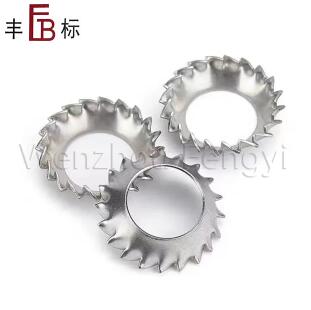What are DIN 6798V Stainless Steel External Countersunk Lock Washers
2024-09-06
When it comes to securing fasteners in industrial applications, ensuring the reliability of the connection is crucial. A key component in achieving this is the DIN 6798V stainless steel external countersunk lock washer. This specialized washer provides enhanced grip and security for bolts and screws, making it an essential element in mechanical assemblies where vibration or movement could loosen fasteners over time.
What is a DIN 6798V Washer?
DIN 6798V refers to a specific standard for lock washers with external teeth, defined by the German Institute for Standardization (Deutsches Institut für Normung, or DIN). This washer is typically countersunk, meaning it sits flush with the surface when installed, offering both functional and aesthetic advantages in various applications.
Key characteristics include:
- Material: Stainless steel, providing excellent resistance to corrosion, making it ideal for outdoor or high-moisture environments.
- External Teeth: The washer’s teeth are located on the outer edge, creating a stronger grip on the bolt and distributing force evenly.
- Countersunk Design: This allows for a streamlined finish when installed with countersunk screws or bolts, making it visually appealing and reducing the risk of snags.
Key Benefits of DIN 6798V Lock Washers
1. Enhanced Security: The external teeth of the washer bite into the surface, preventing loosening due to vibrations or rotational forces.
2. Corrosion Resistance: The use of stainless steel ensures long-term durability, even in harsh environments.
3. Flush Installation: The countersunk design allows for a smooth surface after installation, reducing the risk of damage or wear over time.
4. Versatility: Suitable for a wide range of industries including automotive, construction, machinery, and electronics.
Applications
DIN 6798V washers are used in scenarios where maintaining a secure connection is critical. Common applications include:
- Automotive: Securing components prone to vibration, such as engine parts.
- Construction: Fastening steel frameworks or outdoor structures.
- Electronics: Maintaining secure connections in environments that may be exposed to external forces or temperature changes.



